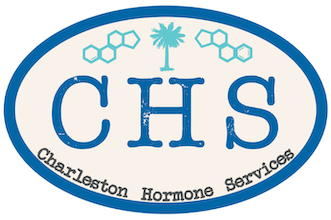Weight Management
Weight gain is often associated with gut health issues, hormonal imbalance, underactive thyroid, Vit D deficiency, HGH deficiency, low testosterone, high cortisol, or poor lifestyle. Specialized testing and symptom review can allow our practice to identify the root cause and offer solutions to achieve your weight management goals. Most women gain weight during perimenopause and/or menopause. This is commonly due to hormonal imbalance and an increase in the inflammatory process. The body begins to redirect fat distribution to the abdominal region instead of the gluteal and femoral regions as women’s estrogen levels lessen. Lowering estrogen levels also leads menopausal women to experience more intense hunger signals due to the loss of the ability to modulate hunger hormones. For men, low testosterone levels can also result in weight gain, as well as decreased muscle mass and decreased bone density. Testosterone replacement can help by optimizing testosterone levels, leading to improved muscle mass, metabolism, and overall health. When the body is in harmony meaning your hormones are balanced and working together for your body to function and if you are taking in the correct amount of nutrients, weight management becomes possible. CHS looks at lifestyle and root
causes that may be contributing to weight gain.
Excess weight increases the risk for cancer, heart disease, diabetes, and more. Sometimes prescription medications are useful to help assist you in your weight loss efforts.
Medications offered at CHS:
– Semaglutide (also known as Ozempic/Wegovy/Rybelsus)
– Metformin
– MIC B12 injections
– Phentermine
– Slim Caps (AOD 9604 + MICB12 +LDN)
– LDN (low dose naltrexone)
– Mounjaro (also known as tirzepatide)


Semaglutide is prescription medication that works by mocking a hormone called glucagon-like peptide-1, which works on the part of the brain that controls appetite and food intake, regulates blood sugar, and slows the process of your stomach discarding food. This medication makes your body feel less hungry which causes you to eat less food. Semaglutide can be given as a once weekly injection or it can be taken in an oral form daily.
Metformin works by reducing blood sugar levels and inflammation. Metformin is an effective drug to help suppress appetite. This medication can reduce weight in insulin sensitive and insulin resistant obese or overweight patients.
Vitamin B12 Injections (skinny shots) contain methionine, inositol, choline and B12. Vitamin B12 is an essential nutrient that plays a key role in the metabolism of fat and carbohydrates, as well as the production of red blood cells. Studies have suggested that low levels of Vitamin B12 may be linked to obesity, and that supplementation with Vitamin B12 may help to increase energy levels and boost metabolism.
Phentermine is an FDA-approved medication used to curb appetite by stimulating the central nervous system. This medication is helpful for patients who suffer from constant cravings and thoughts about food. Phentermine is taken orally and intended for short-term use.
AOD-9604 is a growth hormone-releasing peptide (GHRP) fragment that stands for Anti-Obesity Drug. This peptide helps the body regulate fat metabolism (stimulates lipolysis) and reduce body fat. AOD 9604 does not increase insulin release. This peptide is most effective for patients close to their target weight and for those already eating a sensible diet and exercising daily.
Low dose naltrexone is also known as LDN. Naltrexone itself is a prescription drug known as an opioid antagonist. In the past this drug was only prescribed for opioid and alcohol use disorders. It is now being prescribed in much smaller doses or
microdoses for autoimmune diseases, systemic inflammation, chronic pain, depression, insomnia, thyroid disease, weight loss, cancer prevention, and more.

